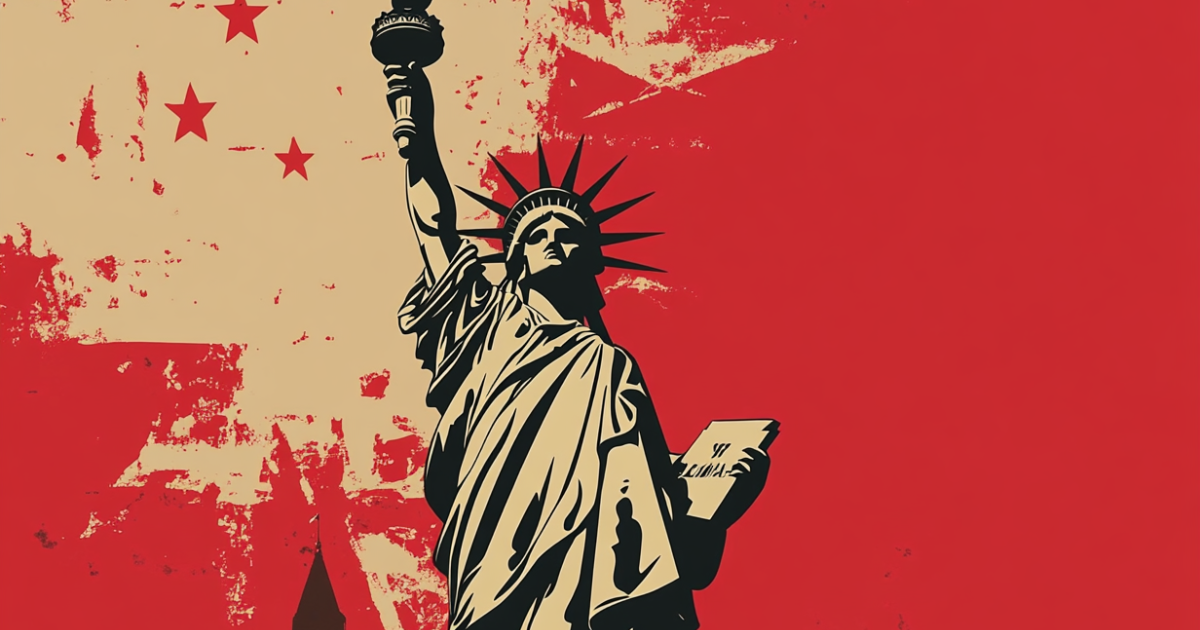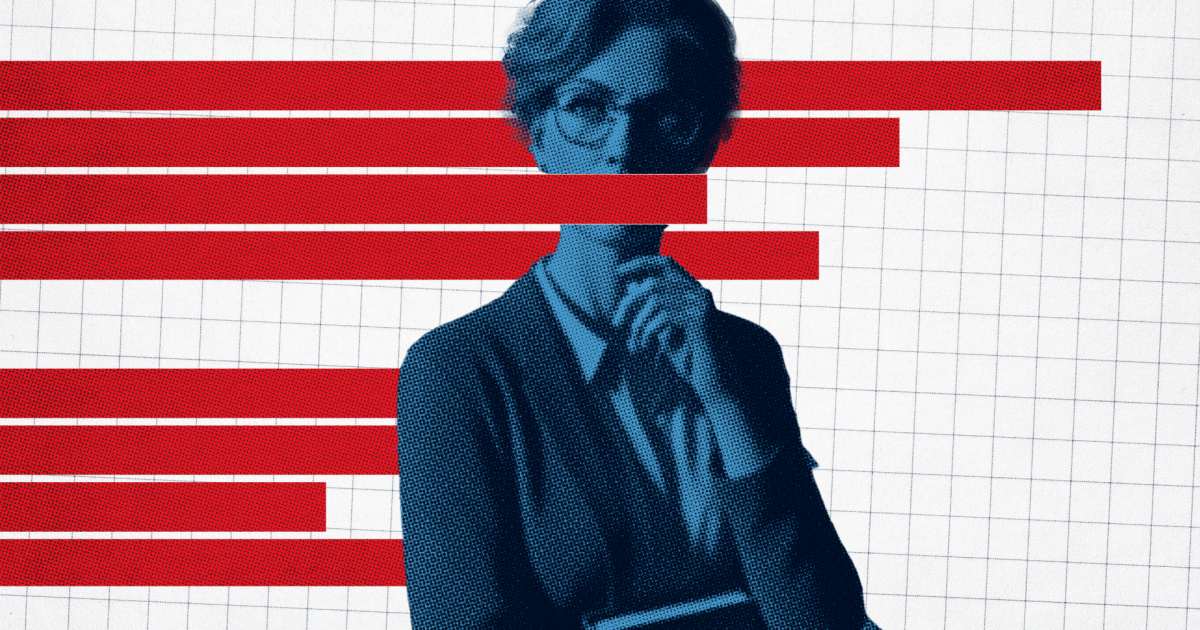This article was originally published in The Dispatch on April 24, 2025.
Two years ago, I moved to the United States to found a think tank devoted to defending global free expression. What better place to launch than America, which is, according to the law professor and First Amendment expert Lee Bollinger, “the most speech protective of any nation on Earth, now or throughout history”?
Despite being Danish, I’ve always found America’s civil-libertarian free speech tradition more appealing than the Old World’s model, with its vague terms and conditions. For much of my career, I’ve been evangelizing a First Amendment approach to free speech to skeptical Europeans and doubtful Americans, who are often tempted by laws banning “hate speech,” “extremism,” and “disinformation.” That appreciation for the First Amendment is something I share with many foreigners — Germans, Iranians, Russians — who now call America home. For some of us, that tradition has become a kind of secular article of faith — the realization of which not only offers a sense of identity, but also a rite of passage into American ideals. Indeed, many of us noncitizens nodded in agreement in February when Vice President J.D. Vance said that European speech restrictions are “shocking to American ears.”
But the very ideal that so many of us noncitizens cherish as America’s “first freedom” is now being curtailed. The administration is invoking a clause of the Immigration Nationality Act of 1952 that allows the secretary of state unfettered discretion to deport aliens, including anyone he believes “would have potentially serious adverse foreign policy consequences for the United States.” This new scheme has begun with the detaining of foreign students — including visa and green card holders — for allegedly antisemitic speech.
Combating anti-Semitism is an important and legitimate government interest, and both Americans and noncitizens are safer when bigotry is confronted. But for six decades America has prohibited censorship and relied on counterspeech as the main bulwark against hatred, not least because leading Jewish and black civil rights groups have long recognized the danger of giving the government power over speech. Had the administration focused on noncitizens engaged in illegal or seriously disruptive conduct targeting Jewish students — which clearly occurred on some campuses after the October 7 terrorist Hamas attacks — few could have objected.
But it’s now clear that the government is targeting noncitizens for ideas and speech protected by the First Amendment. The most worrying example (so far) is a Turkish student at Tufts University, apparently targeted for co-authoring a student op-ed calling for, among other things, Tufts to divest from companies with ties to Israel. One report estimates that nearly 300 students from universities across the country have had their visas revoked so far.
George Mason University calls cops on student for article criticizing Trump
News
After a GMU student wrote a provocative essay asking when violence against tyranny is justified, the university promptly forgot its own revolutionary roots — and called the cops.
Instead of correcting this overreach, the government has doubled down. U.S. Citizenship and Immigration Services recently announced that it would begin screening the social media posts of aliens “whose posts indicate support for antisemitic terrorism, antisemitic terrorist organizations, or other antisemitic activity.” Shortly after, the X account of USCIS posted about a “robust social media vetting program” and warned: “EVERYONE should be on notice. If you’re a guest in our country — act like it.” And four days later, White House homeland security adviser Stephen Miller promised to deport “anyone who preaches hate for America.” What that means is anybody’s guess — and seems to depend entirely on subjective assessments.
This has created a wave of self-censorship among the millions of noncitizens who live, study, and work in the U.S. Conversations among expats now center on how many have stopped posting political content or canceled travel abroad, fearing they won’t be let back in. Noncitizens in think tanks and public policy roles I have spoken to are using burner phones and keeping immigration lawyers on speed dial. Universities are advising foreign students and faculty not to publicly criticize the U.S. government or officials. Students are complying, even going so far as to ask to have their bylines removed from articles, refraining from peaceful protests and scrubbing their social media accounts. Even more surreal: People, including me, are receiving constant pleas from friends and family to come home, fearing what might happen if we stay. After all, this is America, not Russia.
As a green card holder, I understand why so many foreign students, faculty members, and other legal residents who live in and love this country might prefer to stay silent—after all, they came here for a reason, whether to study, work, or start a life with loved ones. But silence would be a betrayal of the very values that brought many of us here in the first place. In fact, I can think of few things more un-American than having to self-censor out of fear of being targeted by the government.
I came to America for its freedom, not just to enjoy it, but to defend it — even if that puts me at risk.
This isn’t the first time America has targeted foreign dissenters. In 1798, President John Adams signed the Alien Act, giving himself sweeping power to deport any noncitizen from a friendly nation deemed “dangerous to the peace and safety of the United States,” or merely “suspected” of treason or “secret machinations against the government.” In response, James Madison warned the law’s vague language “can never be mistaken for legal rules or certain definitions” and “subvert[ed] the general principles of free government.” Thomas Jefferson called it “a most detestable thing … worthy of the 8th or 9th century.” Their concerns were vindicated when Americans handed Adams’ Federalists a catastrophic defeat in the 1800 election, and the Alien Act expired under Jefferson.
During the Red Scares of the 20th century, waves of government paranoia led to the surveillance, detention, and deportation of “subversive” noncitizens. McCarthyism has been roundly criticized in the decades since, and few have likely imagined that a McCarthy-era statute would not only survive but be revived and aggressively expanded in the 21st century.
The late British-American journalist Christopher Hitchens is a more recent testament to the long tolerance of America toward foreign dissent. Before becoming a U.S. citizen in 2007, Hitchens spent decades as a legal resident—and as one of America’s most acerbic public intellectuals. He accused Ronald Reagan of being “a liar and trickster,” called Israel America’s “chosen surrogate” for “dirty work” and “terrorism,” lambasted Bill Clinton as “almost psychopathically deceitful,” and accused the George W. Bush administration of torture and illegal surveillance. If a student can be deported for writing a campus op-ed critical of Israel, any of Hitchens’ views could have been used to justify deporting him.
Those applauding the recent crackdowns should remember how quickly the target can change. An overzealous administration focused on countering “Islamophobia” rather than antisemitism might have barred Ayaan Hirsi Ali or Salman Rushdie before they became citizens. The next might decide Douglas Murray crosses the line.
Surely Secretary of State Marco Rubio knows this. In a recent interview, he warned that if Americans are denied entry to or face consequences in Europe for their online speech, it would undermine “one of the pillars of our shared values”—freedom of expression. Yet his own department now targets foreign nationals in the U.S. for the same online speech he was ostensibly protecting.
Had America been known for deporting, rather than welcoming, dissent, I would never have made it my home. That might not have been much of a loss. But consider this: 35 percent of U.S.-affiliated academic Nobel laureates are immigrants, and nearly half of all American unicorn startups have founders born outside the country. How many of these brilliant minds would have chosen the United States if they risked exile for crossing the speech red lines of the moment?
As a European who owes my freedom in life thus far to the America that fought Nazism and defeated communism, I feel a responsibility to speak out when this country strays from its founding ideals. I came to America for its freedom, not just to enjoy it, but to defend it — even if that puts me at risk.
Jacob Mchangama is the executive director of The Future of Free Speech, a research professor at Vanderbilt University and a senior fellow at the Foundation for Individual Rights and Expression. He is the author of “Free Speech: A History From Socrates to Social Media.“


